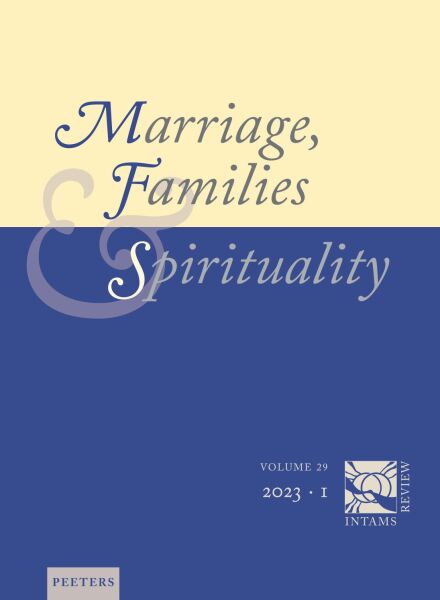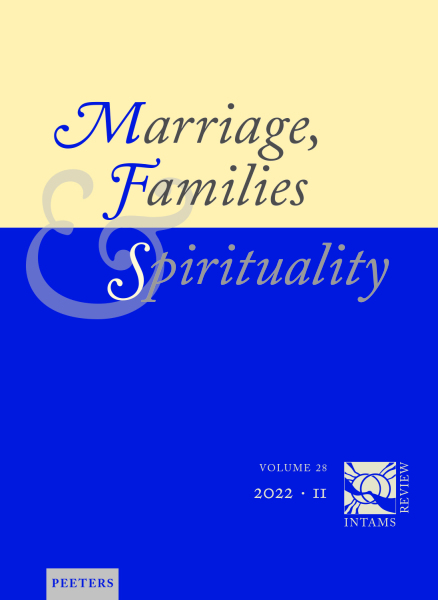
Interchurch Marriage and Ecumenism
10/06/2024
Marriage, Families & Spirituality, vol. 30/1 (2024). Interchurch Marriage and Ecumenism. Are differences of faith, like that between a Catholic and another Christian, insuperable obstacles to marital union? This has long been argued. Today, however, cross-denominational couples are very common. We find that two people from different Christian denominations, each committed to their own tradition, can forge a productive marriage. The articles in this issue argue that these interchurch marriages can not only be good for the couple but can also be helpful in the ecumenical quest for Christian unity. The authors explore perceptions, legislation, and possibilities presented by these couples. In our pluralistic societies, the church would do well to turn to the resources these couples can bring to prolonging a unified Christian witness to the world. Read the Editorial by Thomas Knieps-Port le Roi & Ray Temmerman (full text coming soon) See the Table of Contents and the summaries of the articles

Challenges for the Church in the field of Marriage and Families
24/01/2024
Marriage, Families & Spirituality, vol. 29/2 (2023). insightful contributions to the Challenges for the Church in the field of Marriage and Families. With Pope Francis a new spirit has emerged in the Catholic Church after a long period of deadlock and lethary. Retrieving the often neglected or even ignored seeds of Vatican II and settling essential issues which have not yet been addressed are some of his main tasks. Questions of ecclesiology, especially the concept and structure of the Church in its theological and practical applications, are certainly of prime importance. But items of marriage and sexuality are no less on the agenda. The articles of this issue, at first sight a compilation of loose papers, can be read in this context: they provide modest, but helpful, contributions to the challenges which the Church is facing. Read the Editorial See the Table of Contents and the summaries of the articles

Pastoral Practices, Life Experience, and Moral Theology: Amoris laetitia Between New Opportunities and New Paths
10/04/2023
Vol. 29/1 (2023)Special Theme Issue: International Conference on Moral Theology: Pastoral Practices, Life Experience, and Moral Theology: Amoris laetitia Between New Opportunities and New Paths. This issue publishes a number of lectures given at a conference in Rome, organized and led by the John Paul II Pontifical Theological Institute for the Study of Marriage and the Family and the Gregorian University, under the guidance of Don Maurizio Chiodi, Professor Miguel Yañez, and the newly nominated rector of the John Paul II Institute, Professor Msgr. Philippe Bordeyne. It took place from 11 to 14 May 2022, and INTAMS was an interested participant. Read the Editorial See the Table of Contents and the summaries of the articles





